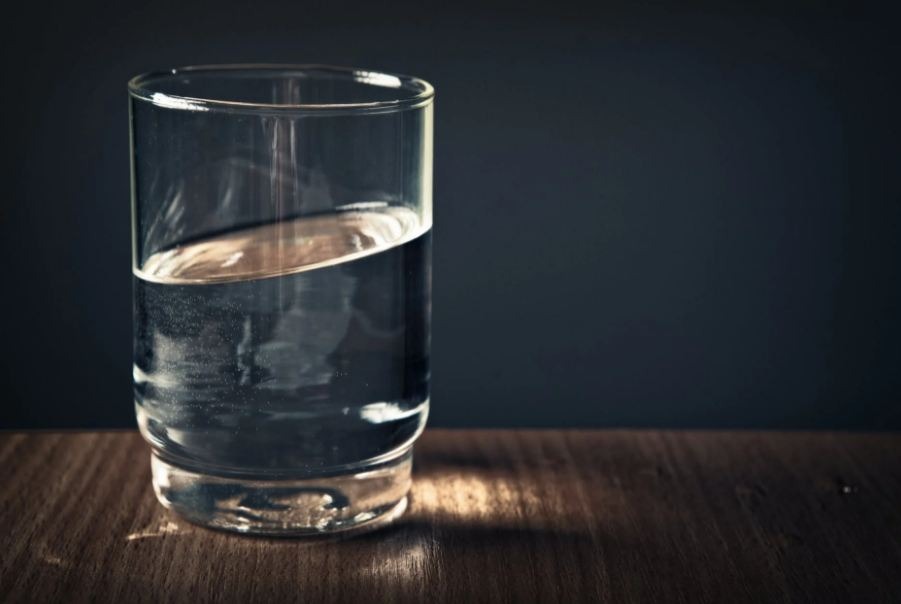Bleeding gums are common and most often nothing to be worried about. Your gums can bleed for several different reasons. One of the most leading causes of bleeding gums is the accumulation of plaque in the mouth. However, people with good oral habits can experience bleeding gums as well. For example, people with sensitive gums might notice some blood when they brush their teeth or floss too hard, irritating their gums. It is necessary to identify the cause of bleeding gums to determine the most appropriate treatment. Try the methods stated below to stop your gums from bleeding and to prevent the bleeding from happening again.
1. Rinse your Mouth with Hydrogen Peroxide
It turns out that hydrogen peroxide is not only effective as a disinfectant but can also solve many dental problems, including bleeding gums. One of the most effective ways to stop bleeding gums is to rinse your mouth with hydrogen peroxide solution following brushing – however, remember not to swallow it. Hydrogen peroxide not only treats bleeding gums but also prevents them. Gingivitis – an inflammation of the gums and a common cause of swelling, bleeding, and receding gums – can be ward off by hydrogen peroxide. Recently, a study examined the effectiveness of hydrogen peroxide solution in preventing gingivitis. The results showed that the subjects who rinsed their mouth with hydrogen peroxide had lower chances of developing gum inflammation than the control group.
Most antibacterial mouthwashes include hydrogen peroxide as one of their active ingredients. Rinsing your mouth with such mouthwashes can remove plaque and promote gum health. You can easily buy a mouthwash that includes hydrogen peroxide from drug stores or online marts. If you are often plagued with bleeding gums, it is best to keep a mouthwash at hand as it reduces inflammation in your gums and provides instant relief.
2. Use a Warm Salt Rinse
One of the major perpetrators of most gum diseases is an accumulation of bacteria in the mouth. Regularly rinsing your mouth with a warm mixture of salt and water can help you get rid of the amassing bacteria and thus, stop gum bleeding. A saltwater rinse can also reduce inflammation and speed up healing time. If your gums are bleeding from an injury, immediately rinse with a warm mixture of saltwater as it will keep your mouth clean by killing any bacteria that could cause an infection.
As recommended by the American Dental Association, add half a teaspoon of salt to eight ounces (one glass) of water to make an oral salt rinse. Although you can use room temperature water for your salt rinse, it is preferred to use warm water as it is more effective in providing relief from inflammation. Once ready, thoroughly swish the salt rinse around the mouth for a few seconds so it can reach the affected area. Spit out the liquid about every swish. Repeat this 3-4 times a day, or the number of times instructed by your dentist.
3. Stop Smoking
Not only does smoking elevate the risk of developing lung cancer and heart diseases, but it is also a contributor to decaying dental health. According to the Centers for Disease Control and Prevention (CDC), smoking is one of the leading causes of severe gum disease.
One of the countless downsides of smoking cigarettes is that it lowers the immune system of your body. Our immune system provides a protective shield against all bacteria and viruses. So when that shield is lowered, it becomes harder for your body to fight off the bacteria that accumulates on the gums and causes plaque. Therefore, we become more susceptible to gum diseases. Moreover, since the immune system is low because of smoking, it becomes difficult for the body to heal the damaged gums, which increases the healing time.
If your gums frequently swell and bleed, consider it a sign from your body telling you to quit smoking. Your whole body will benefit from quitting smoking, especially your mouth and gums. By stopping smoking, you can help your gums heal properly and prevent further bleeding. Moreover, you will also experience a drastic improvement in your oral health once you stub out all your cigarettes. However, instead of going cold turkey, talk to your doctor to figure out the way to quit smoking that works best for you.
4. Increase your Vitamin C Intake
Being a powerful antioxidant, Vitamin C does a mighty job of boosting your immune system. By eating Vitamin C enriched foods, you ensure that your immune system is in top health and you are not susceptible to any gum infections that can cause bleeding gums. Moreover, Vitamin C strengthens the connective tissue and protective lining of your gums, so you need to make sure you are getting enough Vitamin C to protect your gums.
If you have gum disease and are not including enough vitamin C in your diet, your bleeding might worsen. Studies show that you can get bleeding gums if you have a Vitamin C deficiency – even if you practice commendable oral habits.
Some fruits and vegetables rich in Vitamin C include broccoli, spinach, oranges, sweet potatoes, peppers, and carrots. The recommended amount of Vitamin C intake for adults is around sixty-five to ninety milligrams per day. If you do not have a liking for fruits and vegetables, you can also opt for a Vitamin C supplement to fulfill this daily intake requirement. However, it is best to consult your doctor or physician before starting any supplement.
5. Try Oil Pulling
Oil pulling – an Ayurvedic medicine practice – has been employed for centuries to improve oral health. The ancient practice involves swishing a specific oil in your mouth. You can use any oil with antibacterial properties, such as olive oil, sesame oil, sunflower oil, and coconut oil. You can swish the oil for anywhere between one to twenty minutes. Once you are done, spit out the oil. Proponents claim that it alleviates various health issues like migraines, diabetes, and even bleeding gums.
Although the American Dental Association does not recommend oil pulling for dental hygiene due to a lack of scientific evidence proving its effectiveness, many people find it helpful in treating bleeding gums. Results from some small-scale studies showed that people who rinsed their mouths with coconut oil for ten minutes each day had lower plaque levels than those who used a placebo. Scientists theorize that swishing the oil in the mouth pulls out the bacteria living there while spitting the oil removes that bacteria from the mouth. Although there might be some benefits associated with oil pulling, dentists suggest that it cannot replace daily brushing and flossing. If you, too, want to try oil pulling, discuss it with your dentist first.
6. Practice Good Oral Health Care
Bleeding gums are often a sign of poor oral habits and declining dental health. If you do not practice good oral hygiene, a sticky film containing bacteria starts accumulating on your teeth and gums. That sticky film is known as plaque. If left unchecked, bacteria from the plaque can spread along your gum line and cause your gums to become inflamed and bleed. To prevent plaque buildup, you must practice good oral habits and improve your overall oral hygiene.
The most crucial oral habit is to brush your teeth at least twice every day. It is imperative to choose the right toothbrush for yourself. If you have sensitive gums, choose a toothbrush that has extra soft bristles or is labeled sensitive. You can choose either a manual toothbrush or an electric one: both are equally effective. After every three to four months, get a new toothbrush. However, if the bristles of your toothbrush get frayed before that period, immediately get a new toothbrush.
In addition to brushing your teeth twice a day, you should also floss once every day. Regular flossing promotes overall dental health and prevents gum bleeding. If you have not flossed ever before, your gums might bleed. But do not get worried, it only happens because your gums are not used to the stimulation, and after a few days, the bleeding will stop.
Maintaining good oral oral hygiene is extra crucial for pregnant women. Often gum disease and bleedings are triggered during pregnancy due to hormonal fluctuations. Therefore, you must pay extra attention to your oral hygiene if you are pregnant to prevent bleeding gums. Here are more dental care tips you may not know.
When to See a Dentist
If you notice drastic changes in your gums, teeth, or tongue, you should immediately pay a visit to your dentist. Although gums can occasionally swell, ache, or bleed for various reasons, it should not happen every other day. Pay a visit to your dentist if your gums bleed quite often or if the bleeding does not stop after seven to ten days, even after trying home remedies. Your dentist can check for signs of early-stage gum disease. A timely visit to a healthcare professional ensures early diagnosis and prevents the gum disease from turning into something more serious. If left unattended, early-stage gum disease can lead to an infection, which could result in tooth loss.
Gums can also bleed due to vitamin deficiencies, pregnancy, or some other underlying condition. Paying a visit to your dentist means that your overall oral health will be checked, and any underlying conditions – such as early stage of mouth cancer – will be spotted right away.


